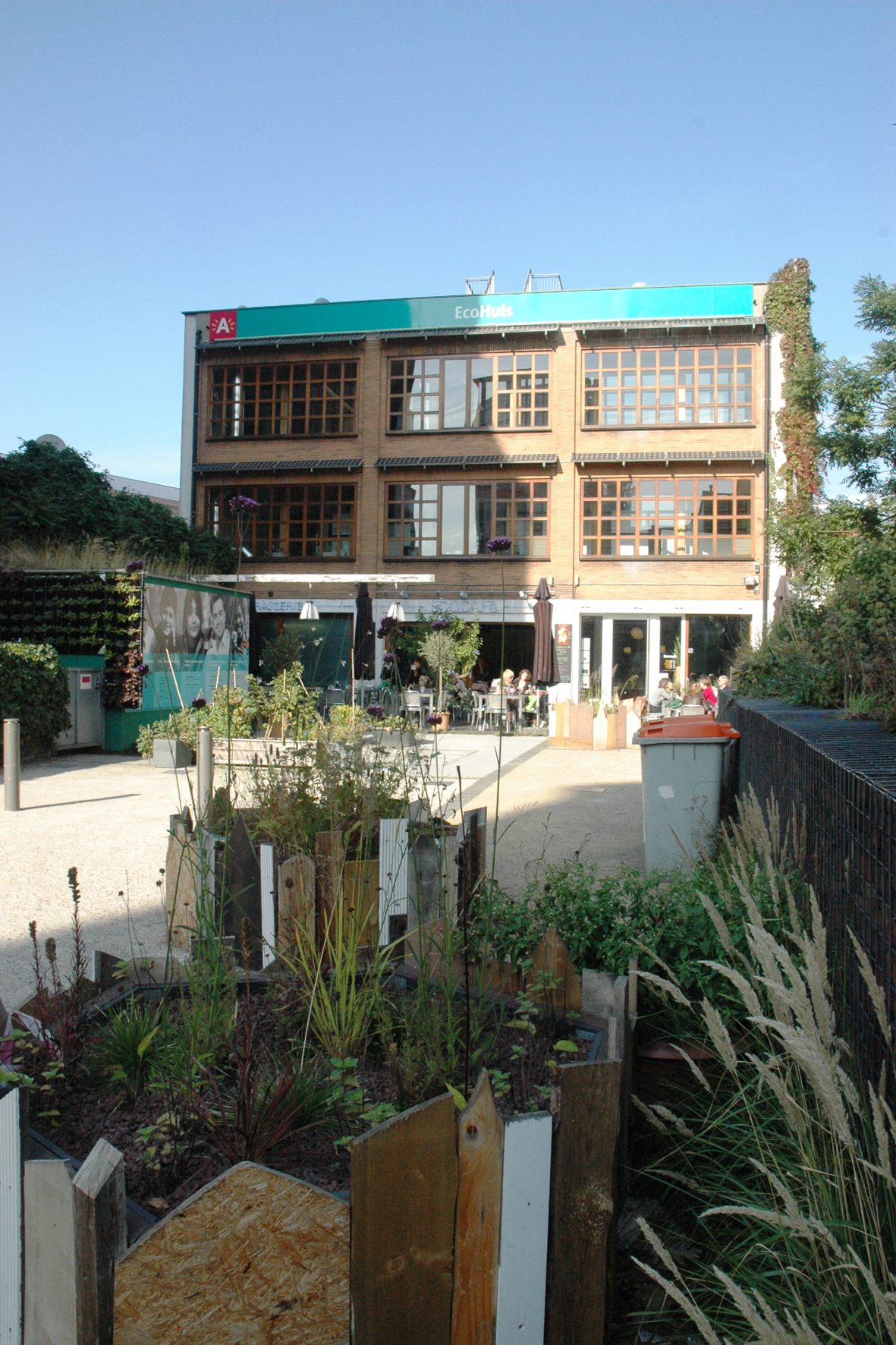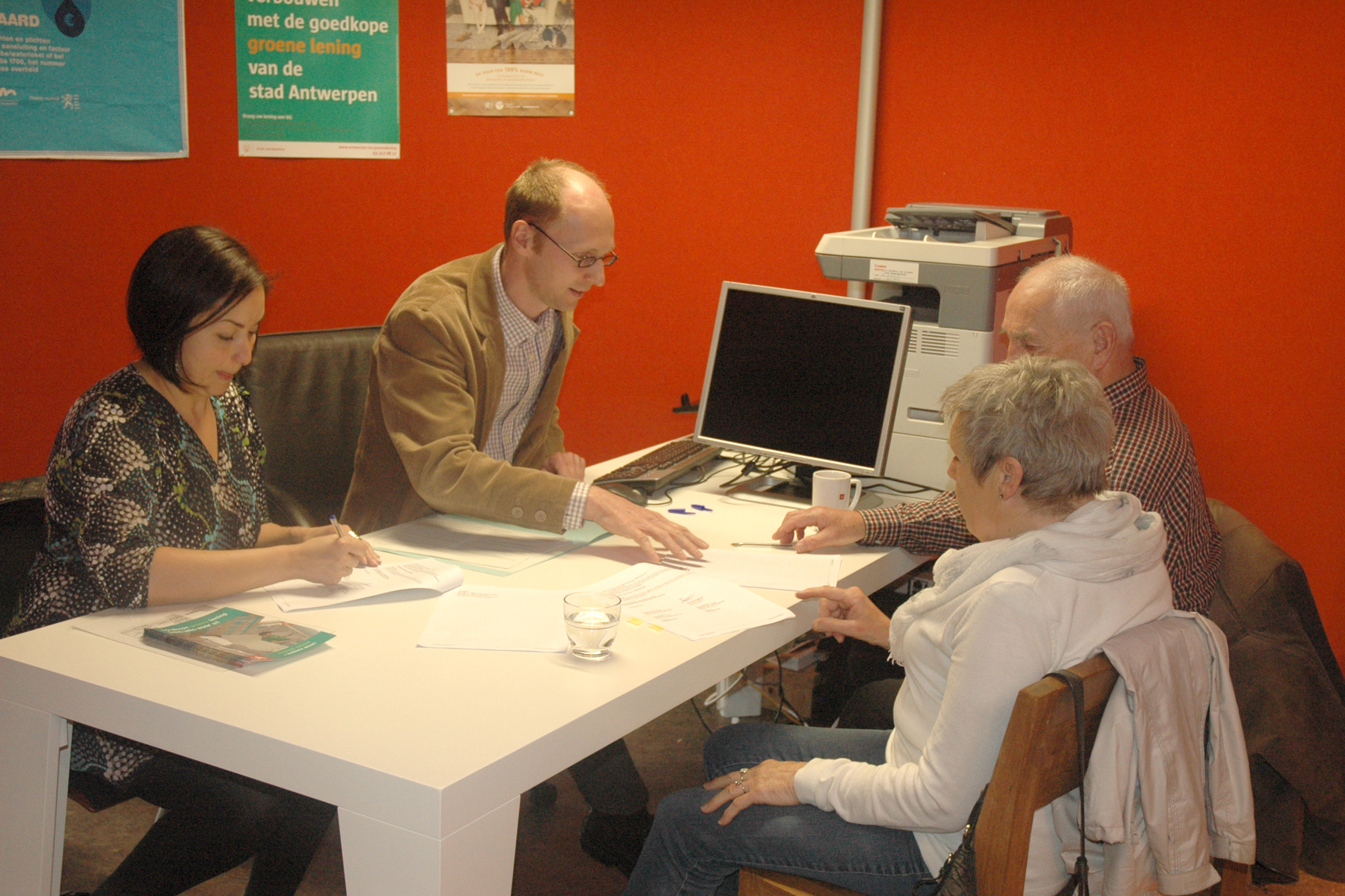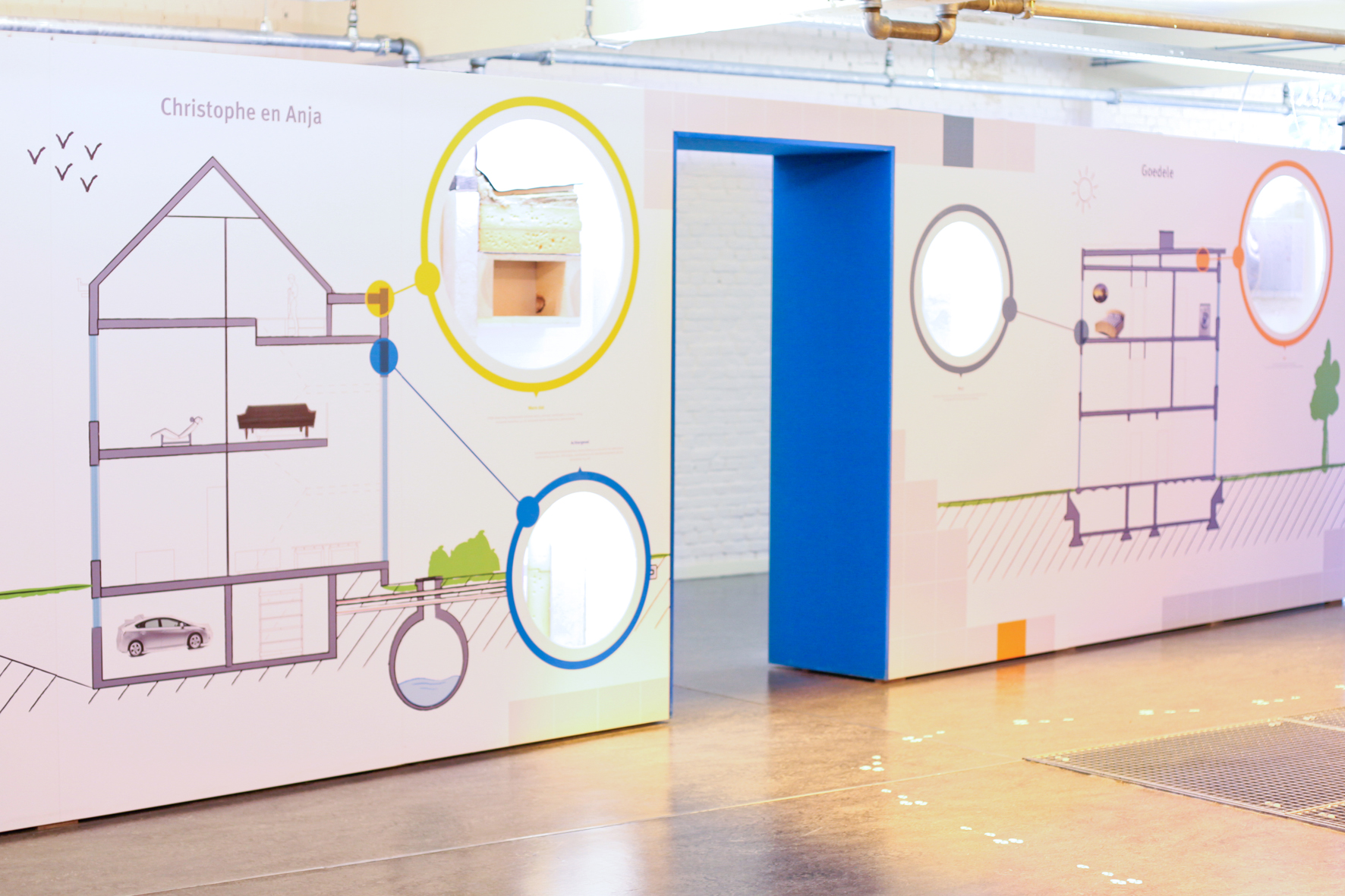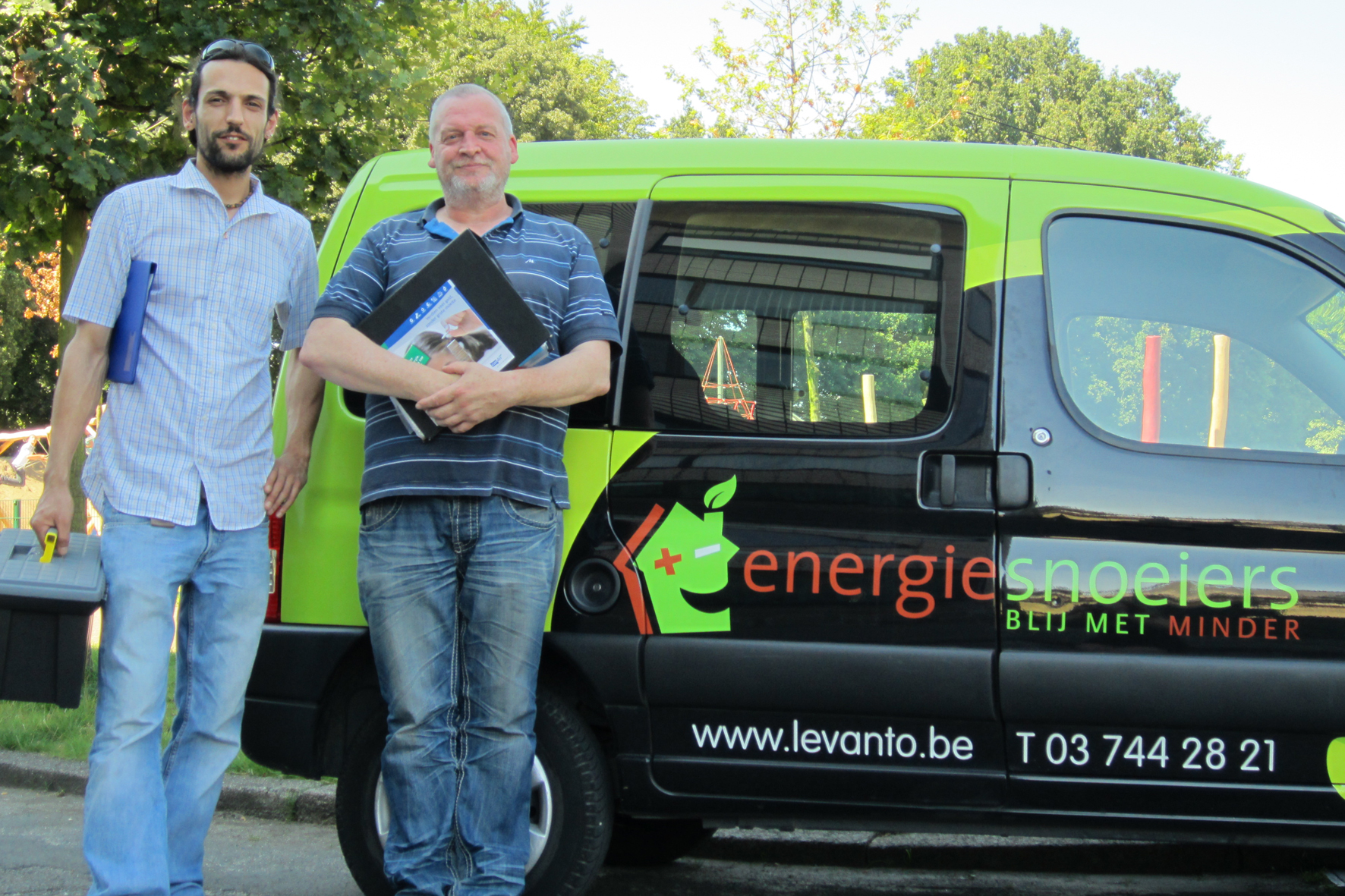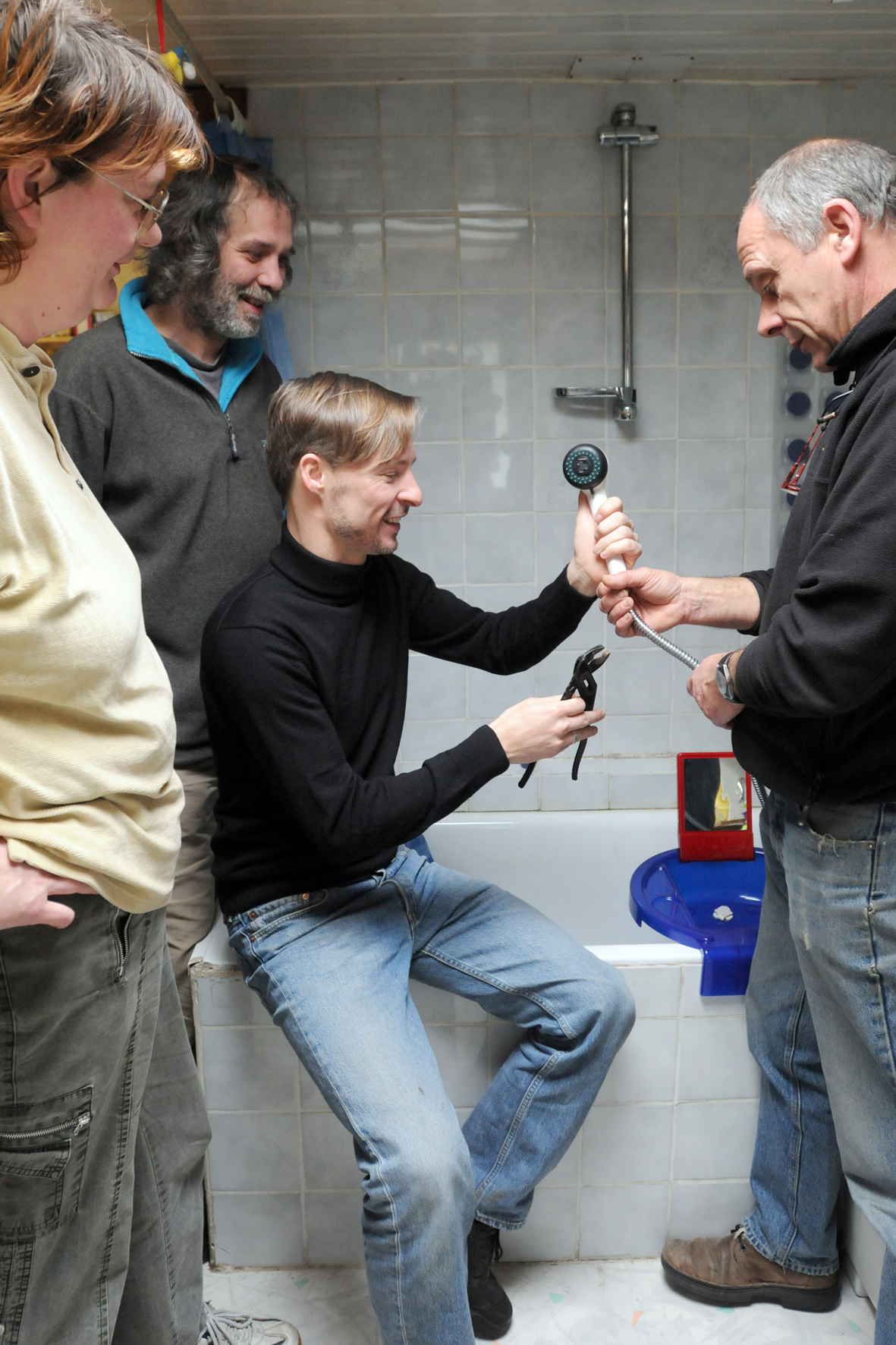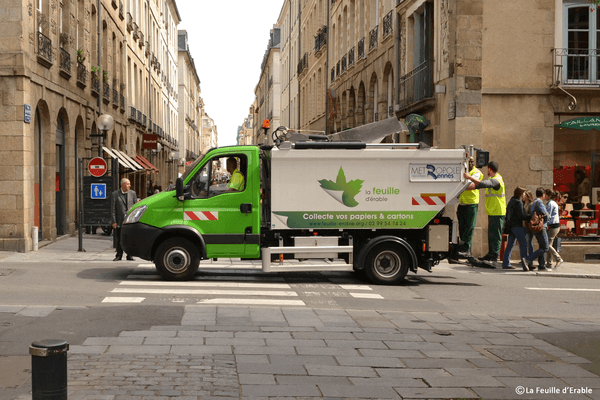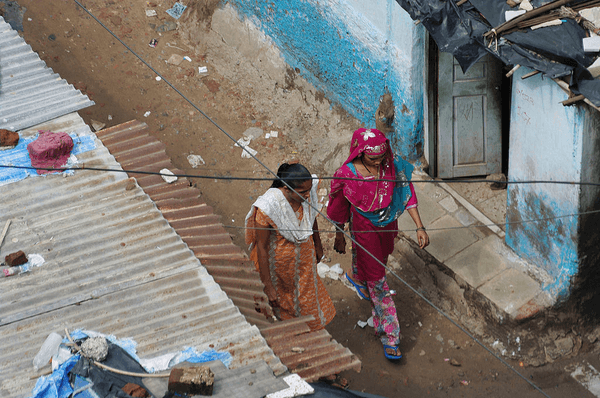City
Antwerp
Main actors
City Government, Regional Government, National Government, Public Utility, other
Project area
Whole City/Administrative Region
Duration
Ongoing since 2015
Antwerp is running an advice and demonstration centre for residents to improve energy efficiency of homes.
EcoHouse is an advice and demonstration centre for sustainable building and living run by the city of Antwerp. The center is working with Levanto, a social economy association, to combat energy poverty and provide opportunities for disadvantaged groups to gain skills and work experience in the green economy.
Levanto conducts energy audits, and offers both short and long term solutions to low income households for saving energy and money. Short term solutions include advice on how to change behaviour to save energy. For more advanced solutions, EcoHouse prepares a personalised plan for investing in energy saving infrastructure. EcoHouse can also help low income households find and negotiate with contractors and coordinate the works to implement these solutions.
The work experience placements organised by Levanto include a customised education component and an on-the-job training with a personal trainer. After working for Levanto for one year, the employees are assisted in finding another job that fits their qualifications and interests. In 2014 20,737 audits were carried out ; Levanto helps 1,970 people annually to strengthen their employability. In the beginning it was difficult to reach the target group of low income households with the programme of energy saving measures. Offering easy to implement solutions that bring immediate gains helped attract interest.
Originally published by EUROCITIES, the network of 130 European cities - PDF: http://nws.eurocities.eu/MediaShell/media/353-green-web_final.pdf
External links / documents
On Map
The Map will be displayed after accepting cookie policy
